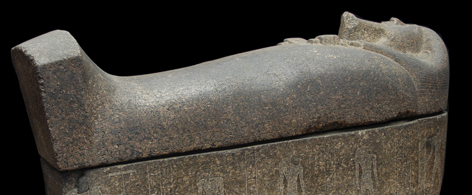Abstracta in Concreta: Engaging Museum Collections in Philosophical and Religious Studies Research
Dr Victoria S. Harrison, Reader in Philosophy, Department of Philosophy and Department of Religious Education, University of Glasgow
V.Harrison@philosophy.arts.gla.ac.uk
Dr Philip Tonner, Research Support Officer, Centre for Collections Research, Research and Major Projects Section, Glasgow Museums
p_tonner@hotmail.com
Keywords: Material culture, Philosophy, Religious Studies, Museums, Research Training
Abstracta in Concreta is an example of museums and universities working together to address the needs of students in higher education. This presentation will outline the goals of this one day event and explain its content. It will also review to what extent this project was successful and constitutes an example of good practice which could be used as a model for others to follow. The various difficulties encountered in planning and executing the event will also be discussed in the hope that this may help others to avoid certain pitfalls. Finally, we will address the legacy of the event.
1. What was Abstracta in Concreta?
Abstracta in Concreta was a collaborative venture between the University of Glasgow and Glasgow Museums, organised by Philip Tonner of Glasgow Museums and Victoria Harrison of the University of Glasgow. It was a one day research-training seminar with the goal of providing research students in philosophy and religious studies with the tools required to engage critically with museum collections, such as those held by Glasgow Museums. It was held on the 21st of May 2009. Funding was provided by a grant from the The Higher Education Academy, Subject Centre for Philosophical and Religious Studies, based at the University of Leeds.
2. What were its goals?
Abstracta in Concreta aimed to explore the potential of museum collections for contributing to postgraduate research in philosophy and religious studies. It aimed to provide the opportunity for students to extend and enhance their research environment by highlighting the potential of museum collections for contributing to postgraduate research in philosophy and religious studies. It sought to address the space between support for philosophy and religious studies research students provided by the university and the museums sector. It also aimed to facilitate the formation of a network of research students working in philosophy and religious studies with an interest in material culture. A further goal was to provide an example of collaborative work between universities and museums that others could emulate and expand upon.
3. Who participated?
The event was advertised to philosophy and religious studies research students throughout the UK. Delegates came from a number of universities in Scotland, England and Wales.
Participating staff were drawn from Glasgow Museums, the University of Glasgow, and the Subject Centre for Philosophical and Religious Studies, as follows:
Dr Victoria Harrison, Reader in philosophy, Department of Philosophy, University of Glasgow
Mr Leon Robinson, University Teacher, Department of Religious Education, University of Glasgow
Dr Philip Tonner, Research Support Officer, Research and Major Projects, Glasgow Museums and Honorary Research Fellow, Department of Philosophy, University of Glasgow
Dr William Kilbride, former Research Manager for Human History, Glasgow Museums, Executive Director, Digital Preservation Coalition
Dr Martin Bellamy, Head of Major Projects and Research, Glasgow Museums
Dr Ellen McAdam, Collections Services Manager, Glasgow Museums, currently Acting Head of Glasgow Museums
Ms Elisabeth Schulte, Curator of World Religions, Glasgow Museums
Ms Kirsty Hood, Learning Assistant, Glasgow Museums
Dr Rebecca O’Loughlin, Subject Centre for Philosophical and Religious Studies,
4. What was its content?
Through lectures, discussion and demonstration speakers explored how the abstract concerns of philosophy and religious studies can be approached through the concreta offered by material culture and museum collections.
5. How successful was it?
The event attracted more interest than we had anticipated. We had only 20 places for students, but we had a waiting list of others hoping to attend. At the end of the day the delegates who attended the event were asked to complete an evaluation questionnaire. The result was very encouraging and provided us with positive feedback and constructive criticism. We shall discuss the results of the questionnaire in the presentation.
6. What difficulties were encountered in the university/museum collaboration?
Most of the difficulties encountered were technical. Some arose from trying to negotiate between the universities IT services and those of Glasgow Museums. We also ran into unanticipated difficulties in executing our plans to secure the legacy of the event. There are some general lessons that can be learnt from this which we will discuss in the presentation.
7. What is the legacy of Abstracta in Concreta?
We will discuss how far this research training event met its stated aims and draw some conclusions about how to build on its success.
